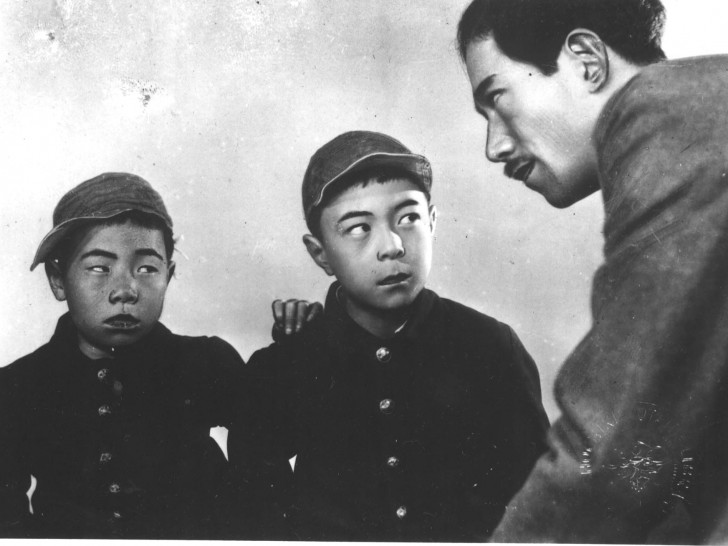
I Was Born But...
(Umarete Wa mita keredo...)
Live Musical Accompaniment
Screening on Film
With Hideo Sugawara, Tomio Aoki, Tatsuo Saito.
Japan, 1932, 35mm, black & white, silent, 100 min.
Hailed by film critic Donald Richie as “a masterpiece,” I Was Born But … was financial and critical hit in its original release (winning the Kinema Jumpo poll as best Japanese film of the year) and remains a favorite of such Ozuphiles as director Wim Wenders and writer Phillip Lopate. In this darkly funny look at the conflict between parents and their offspring, an office clerk moves to the suburbs with his wife and two sons. Bullied by the other kids, the two boys turn into truants and begin to see in their father’s toadying ways with his boss the seeds of a life of flunkeyism. Their impatience with their parents and the hypocrisy of the adult world leads them to an intriguing form of civil and social disobedience.
Benshi were the “narrators” of silent-era films in Japan and played a key role in the general popularity of movies of the time. Like the tayu narrators of the traditional Bunraku puppet theater, benshi became star entertainers and were often as popular as movie actors or directors. Midori Sawato, one of the few modern benshi, has won large new audiences in Japan for American, European, and Japanese films from the silent era.









































